Related Research Articles
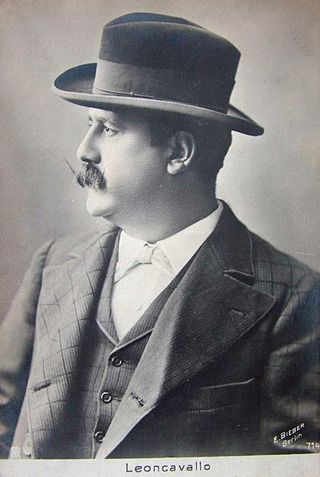
Ruggero Leoncavallo was an Italian opera composer and librettist. Throughout his career, Leoncavallo produced numerous operas and songs but it his 1892 opera Pagliacci that remained his lasting contribution, despite attempts to escape the shadow of his greatest success.

Francesco Cilea was an Italian composer. Today he is particularly known for his operas L'arlesiana and Adriana Lecouvreur.

Lucia di Lammermoor is a dramma tragico in three acts by Italian composer Gaetano Donizetti. Salvadore Cammarano wrote the Italian-language libretto loosely based upon Sir Walter Scott's 1819 historical novel The Bride of Lammermoor.
This is a list of music-related events in 1802.
The name Teodoro is the Italian, Portuguese and Spanish form of Theodore.
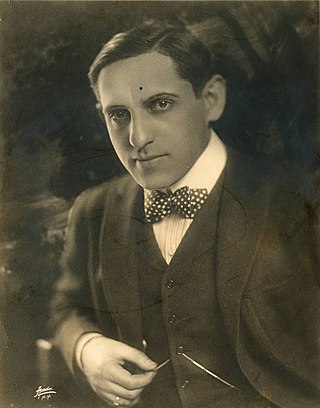
Gustave Edwards was an American composer, songwriter and film director. He also was a vaudevillian, organised his own theatre companies and was a music publisher.
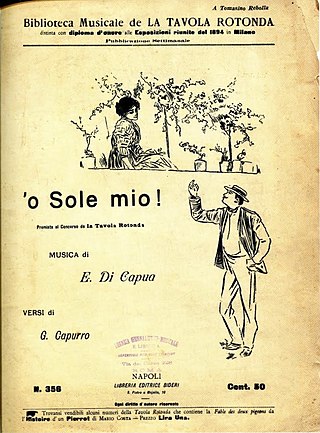
"'O sole mio" is a well-known Neapolitan song written in 1898. Its Neapolitan-language lyrics were written by Giovanni Capurro and the music was composed by Eduardo di Capua (1865–1917) and Alfredo Mazzucchi (1878–1972). The title translates literally as "my sun" or "my sunshine". The lyrics have been translated to other languages.

"Santa Lucia" is a traditional Neapolitan song. It was translated by Teodoro Cottrau (1827–1879) into Italian and published by the Cottrau firm, as a barcarola, in Naples in 1849. Cottrau translated it from Neapolitan into Italian during the first stage of the Italian unification. Significantly, it is the first Neapolitan song to be translated to Italian lyrics. Its transcriber, who is often miscredited as its composer, was the son of the French-born Italian composer and collector of songs Guillaume Louis Cottrau (1797–1847). Various sources credit A. Longo with the music, 1835.

The following discography contains information regarding some of the published recordings by Enrico Caruso made from 1902 through 1920 as have been made available in selected compact disc compilations.
Canzone napoletana, sometimes referred to as Neapolitan song, is a generic term for a traditional form of music sung in the Neapolitan language, ordinarily for the male voice singing solo, although well represented by female soloists as well, and expressed in familiar genres such as the love song and serenade. Many of the songs are about the nostalgic longing for Naples as it once was. The genre consists of a large body of composed popular music—such songs as "'O sole mio"; "Torna a Surriento"; "Funiculì, Funiculà"; "Santa Lucia" and others.

"La Paloma", "The Dove" in English, is a popular Spanish song that has been produced and reinterpreted in diverse cultures, settings, arrangements, and recordings over the last 140 years. The song was written by the Spanish Basque composer Sebastián Iradier around 1860 after a visit to Cuba. In 1879, it was registered at the copyright office in Madrid as a "Canción Americana con acompañamiento de Piano". Iradier was to die in obscurity within few years, never to learn how popular his song would become.

Guido and Maurizio De Angelis, also known as Oliver Onions, are a prolific duo of Italian musicians, multi-instrumentalists, composers and singers, as well as television and film producers. They reached the height of their popularity in the 1970s and early 1980s both as composers and as performers, mainly thanks to their scoring and theme song composing and performing for action/comedy films starring the popular duo of Bud Spencer and Terence Hill, many of which became huge hits all across Europe, both cinematically and musically. After a period of retirement from the music business in the 1990s and early 2000s, during which they moved into television and film production through their own company, they had a musical comeback thanks to a one-off concert event in Budapest, Hungary, billed as Oliver Onions Reunion Live Budapest and organized by local promoter Gábor Kóves mainly because of the duo's popularity in his homeland, itself due to the fact that Spencer & Hill films were hugely popular in the country during the Communist regime - and, according to Maurizio De Angelis's commentary on the show, still are. The event, testified by the 2017 release of a double CD/DVD box set, led to a series of other successful shows in Italy and Europe in the following years.

Bob Hilliard was an American lyricist. He wrote the words for the songs: "Alice in Wonderland", "In the Wee Small Hours of the Morning", "Any Day Now", "Dear Hearts and Gentle People", "Our Day Will Come", "My Little Corner of the World", "Tower of Strength" and "Seven Little Girls ".
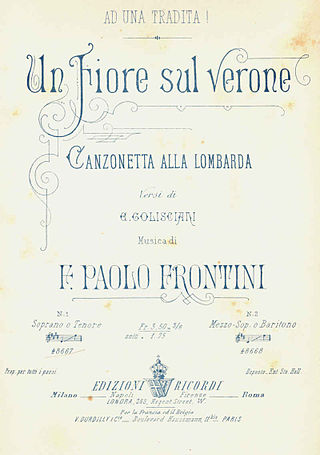
Enrico Golisciani was an Italian author, born in Naples. He is best known for his opera librettos, but also published a slim volume of verses for music, entitled Pagine d'Album ; many more of his poems intended to be set to music were published in the Gazzetta Musicale di Milano.

Incanto is the twelfth studio album by Classical Italian tenor Andrea Bocelli, released on 4 November 2008 and coinciding with his 50th birthday. The album, a personal tribute to the musical traditions of his homeland, features mainly Neapolitan love songs from Bocelli's childhood.
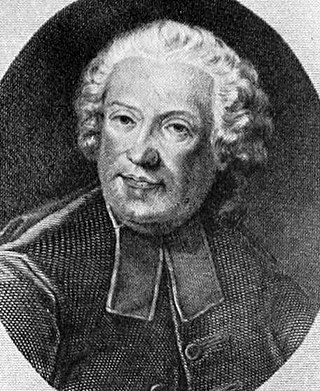
L'impresario delle Isole Canarie, also known as L'impresario delle Canarie or Dorina e Nibbio, is a satirical opera intermezzo libretto attributed to Metastasio, written in 1724 to be performed between the acts of Metastasio's opera seria Didone abbandonata. The first performance of the work was on February 1, 1724, in Naples, Italy, at Teatro San Bartolomeo. The first composer to set this libretto to music was Domenico Sarro, also known by the name Sarri, who also revised the work in 1730. The role of Dorina was first sung by the contralto Santa Marchesini, and Nibbio by the basso buffo singer Gioacchino Corrado. Later versions of this libretto appear with the titles L'impresario, L'impresario e la cantante and others.
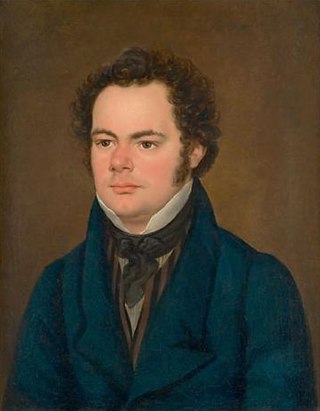
Franz Schubert's best known song cycles, like Die schöne Müllerin and Winterreise are based on separate poems with a common theme and narrative. Other song cycles are based on consecutive excerpts of the same literary work: Schubert's "Ave Maria" is part of such a song cycle based on excerpts of the same poem, in this case by Walter Scott.
Augusto Umberto Gentile, also known as Augusto Alberto Gentile was a pianist and composer of Argentine tangos. Gentile was born in Rome, Italy and signed his middle name "Alberto" because he preferred it to "Umberto". Around 1913, he began to compose tangos. As a performer, he recorded some tangos on piano solo for the "Telephone" label in 1918, and he was also artistic director for that label. He worked with lyricists such as Pascual Contursi and Juan Andrés Caruso. Gentile died in Buenos Aires, Argentina.

Ernesto Capocci Belmonte was an Italian mathematician, astronomer and politician.
References
- ↑ The Book of World-Famous Music: Classical, Popular and Folk -James J. Fuld - 2000 p485 "Teodoro Cottrau, a composer, lyricist, publisher, journalist and politician, was born in Naples in 1827 and died there in 1879."
- ↑ Concerto: Das Magazin für Alte Musik 2002 "Zwei gitarrenbegleitete Canzonen von Gennaro Negri und Teodora Cotrau leiten ins frühe 19. Jahrhundert über - und damit ins postkartenhafte Bella-Napoli-Klischee, also die Kommerzialisierung der Folklore. Immerhin singt Rosario Totaro ...
- ↑ David Neale - 2003 Roots of Elvis - p104 Santa Lucia (Teodoro Cottrau) Recorded by Elvis on Wednesday, 10 July 1963 Original: Caruso, 1916 Elvis's version can be heard on Elvis For Everyone Italian Teodoro Cottrau wrote this number in 1850. Elvis's version was sung in Love In ..."